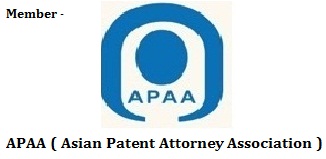Delhi High Court Stayed on Order of The TMR for “ Abandoned “ of Trade mark Application in large Quantity
The Delhi high court on Tuesday stayed a staggering 193,908 orders issued by the Comptroller General of Patents, Design and Trademarks between 28 and 31 March, scrapping as many trademark applications.
The Intellectual Property Attorneys Association, an organization based in Delhi, approached the court for an urgent hearing on Tuesday, alleging that the trademark registry cancelled an unusually high number of trademark applications without issuing notices to the applicants or lawyers.
C.M. Lall, president of the association, told court that hundreds of trademark owners had been affected by these orders.
Separately, Tata Steel Ltd also moved the court seeking a stay on an order affecting its interests.
Justice Manmohan stayed the abandonment orders in response to the petition, a copy of which Mint has reviewed. The petition alleges that the orders have been passed arbitrarily and in haste.
“In a single day, on 31 March, around 52,000 abandonment orders have been passed which clearly shows there is no application of mind,” the plea said.
“The functioning of the Trade Marks office and the Patents office is coming in for huge criticism in recent times. Such arbitrary actions by government authorities is likely to bring a bad name for India, especially when the government is taking so many steps to strengthen IP administration,” said Prathiba Singh, a lawyer specializing in intellectual property rights.
The registry has come under the scanner over a high number of pending applications.
“Under the Madrid Protocol, all countries are required to dispose of applications periodically and avoid piling of applications. The Indian trademark registry could have come under pressure and displayed a classic case ofjugaad,” said Shamnad Basheer, founder of the SpicyIP (intellectual property) blog.
The Madrid Protocol, 1989, is governed by the World Intellectual Property Organization, and protects trademark rights in multiple jurisdictions.
As per the Trademarks Rules, 2002, the registry is required to issue notices and seek applicant response before rejecting applications. Almost all applicants claimed they received no communication. The rules also provide one month for the applicant to reply to the notice.
“This mass culling of trademark applications is alarming to the industry. This departure from established norms will only show Indian trademark industry in terrible light,” said Saikrishna Rajgopal, managing director of Saikrishna and Associates, a law firm based in Delhi.
Mint could not immediately contact the Comptroller General’s office.
The case will be heard next on 12 May.
Priyanka Mittal contributed to the story.


